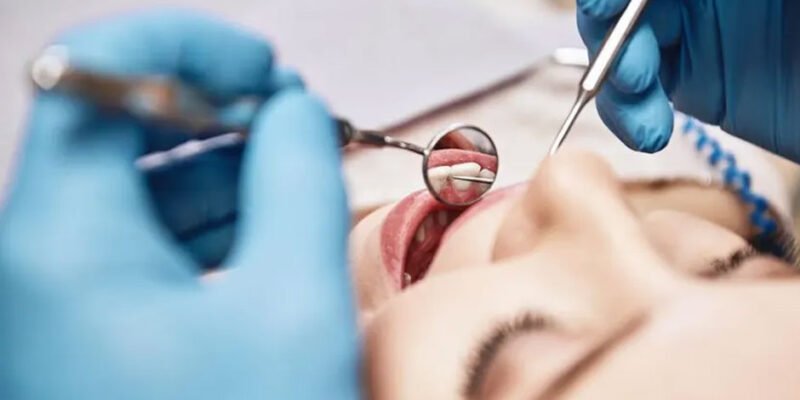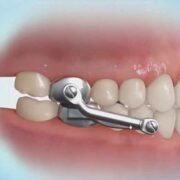Introduction
Gum disease, also known as gingivitis, can pose a threat to your oral health if left untreated. Healthy gums are essential for securing your teeth and preventing harmful bacteria from causing damage to the supporting tissues. Fortunately, gingivitis is treatable, and there are steps you can take to improve your gum health without the need for a dentist. In this article, we will explore what gingivitis is, its symptoms, causes, and potential treatments. We will also provide preventive measures to maintain a healthy mouth.
Understanding Gingivitis
What is Gingivitis?
Gingivitis is a dental disease that involves gum inflammation and, if untreated, may lead to gum infection. The condition arises when bacteria or their byproducts trigger an inflammatory response in the gums.
Common Symptoms of Gingivitis
It’s essential to recognize the signs of gingivitis early on to seek appropriate treatment. Common symptoms include:
- Inflammation of the gums
- Redness in the gum tissue
- Shiny appearance of the gums
- Bleeding when brushing, flossing, or using dental instruments
Additionally, gingivitis can cause persistent bad breath due to the presence of inflamed gums that trap hard-to-remove plaque and tartar.
What Causes Gingivitis?
Gingivitis is often linked to the buildup of plaque, a sticky film that forms on teeth due to bacteria. In many cases, simply scheduling regular appointments with your local dentist can ensure that gingivitis is treated and cared for before it becomes a serious problem.
Regular brushing and flossing help remove plaque, preventing it from causing harm. However, poor dental hygiene can lead to the accumulation of plaque and tartar, which can irritate and inflame the gums. Certain risk factors make some individuals more susceptible to gingivitis:
- Medications: Some medications, such as anticonvulsants, calcium channel blockers, and immunosuppressants, can contribute to gum overgrowth (gingival hyperplasia) and hinder plaque-cleansing saliva production.
- Tobacco Smoke: Smoking can disturb the balance of oral bacteria and weaken the body’s immune system, making smokers more vulnerable to gum infections.
- Diabetes: Individuals with diabetes are more likely to develop periodontal disease, and diabetes medications may contribute to dry mouth.
- Pregnancy: Hormonal changes during pregnancy, particularly the increase in estrogen and progesterone, can make the gums more sensitive to irritants like plaque.
- Age: As people age, the risk of periodontal disease increases, with nearly half of adults over 30 and 70% of those over 65 experiencing some form of periodontal disease.
- Poor Nutrition: Vitamin and mineral deficiencies can weaken the immune system’s ability to fight infections, including gingivitis.
- Genetics: Some studies suggest that a portion of periodontal disease may be inherited.
- Gender: Men tend to have a higher prevalence of gum disease than women, often due to differences in oral health habits.
- Braces and Dental Appliances: Orthodontic appliances can make thorough brushing and flossing difficult, leading to increased inflammation and plaque accumulation.
The Consequences of Ignoring Gingivitis
Failure to address gingivitis promptly can lead to more severe periodontal disease, causing the gums to recede and create pockets where bacteria can thrive. In advanced stages, this condition can lead to tooth loss and further health complications. Moreover, oral microbes or toxins from gingivitis can enter the bloodstream, causing localized infections or inflammatory responses in other parts of the body. The potential risks associated with untreated gingivitis include:
- Cardiovascular Disease: Individuals with periodontal disease have a higher risk of heart attacks and strokes.
- Respiratory Infections: Bacteria from untreated gingivitis can be inhaled, leading to respiratory problems like pneumonia and chronic obstructive pulmonary disease (COPD).
- Diabetes: Uncontrolled periodontal disease can exacerbate diabetes, and diabetic patients with gum disease may experience increased blood sugar levels.
- Impotence: Chronic inflammation caused by gingivitis can affect blood vessels, potentially leading to impotence in men.
- Preterm Birth: Severe gum disease can increase the likelihood of preterm birth and put babies at risk for various health issues.
- Cancer: Periodontal disease has been associated with an increased risk of certain cancers, particularly in men.
Treatments for Gingivitis
Early Treatment and Prevention
The best approach to gingivitis is prevention and early intervention. Practicing good oral hygiene habits is essential, including brushing twice a day, flossing daily, and scheduling professional dental cleanings every six months. Avoiding lifestyle factors like smoking is also crucial for gum health.
Treating Gingivitis
If you are experiencing gingivitis, your dentist may recommend the following treatments:
- Scaling and Root Planing: This procedure involves removing plaque and tartar from below the gumline and smoothing the tooth root’s surface, making it harder for plaque to accumulate.
- Periodontal Pocket Procedure: A periodontist may attach gum tissue to the tooth, eliminating the pockets that harbor bacteria.
- Drug Treatment: Antibiotics and mouthwashes may be prescribed to combat the bacteria responsible for gingivitis.
- Prebiotics: Certain ingredients, such as xylitol, can promote beneficial oral microbes while hindering harmful ones.
The costs of these treatments will vary based on the severity of the disease and your location.
Preventing Gingivitis
Maintaining good oral hygiene is the key to preventing gingivitis. Brush your teeth at least twice a day, floss regularly, and visit a dental professional for regular check-ups. If you notice any signs of gingivitis, such as swollen or bleeding gums, seek dental attention promptly.
Takeaways
Gingivitis is a common condition that can be treated if detected early. Regular dental care, healthy lifestyle choices, and preventive measures are essential for maintaining gum health. However, if gingivitis progresses into severe periodontal disease, it can lead to tooth loss and may even affect overall health. Therefore, it is crucial to address gingivitis promptly and seek professional dental care when needed.














Comments